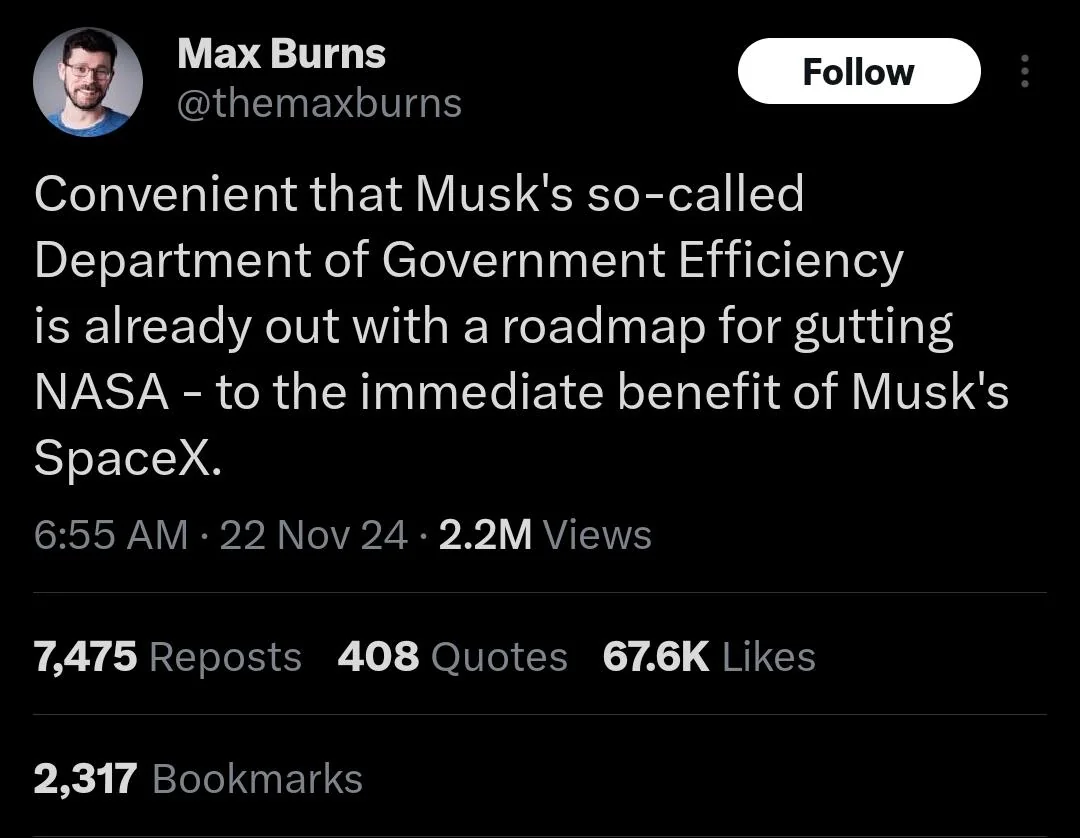this post was submitted on 23 Nov 2024
1329 points (99.5% liked)
Political Memes
8081 readers
2973 users here now
Welcome to politcal memes!
These are our rules:
Be civil
Jokes are okay, but don’t intentionally harass or disturb any member of our community. Sexism, racism and bigotry are not allowed. Good faith argumentation only. No posts discouraging people to vote or shaming people for voting.
No misinformation
Don’t post any intentional misinformation. When asked by mods, provide sources for any claims you make.
Posts should be memes
Random pictures do not qualify as memes. Relevance to politics is required.
No bots, spam or self-promotion
Follow instance rules, ask for your bot to be allowed on this community.
No AI generated content.
Content posted must not be created by AI with the intent to mimic the style of existing images
founded 2 years ago
MODERATORS
you are viewing a single comment's thread
view the rest of the comments
view the rest of the comments

Saturn V stage 1 ran on kerosene (RP-1) and liquid oxygen
Stages 2 and 3 were hydrogen.
The rocket you want, to use space hydrogen, is the bussard ramjet, which unfortunately isn't expected to work